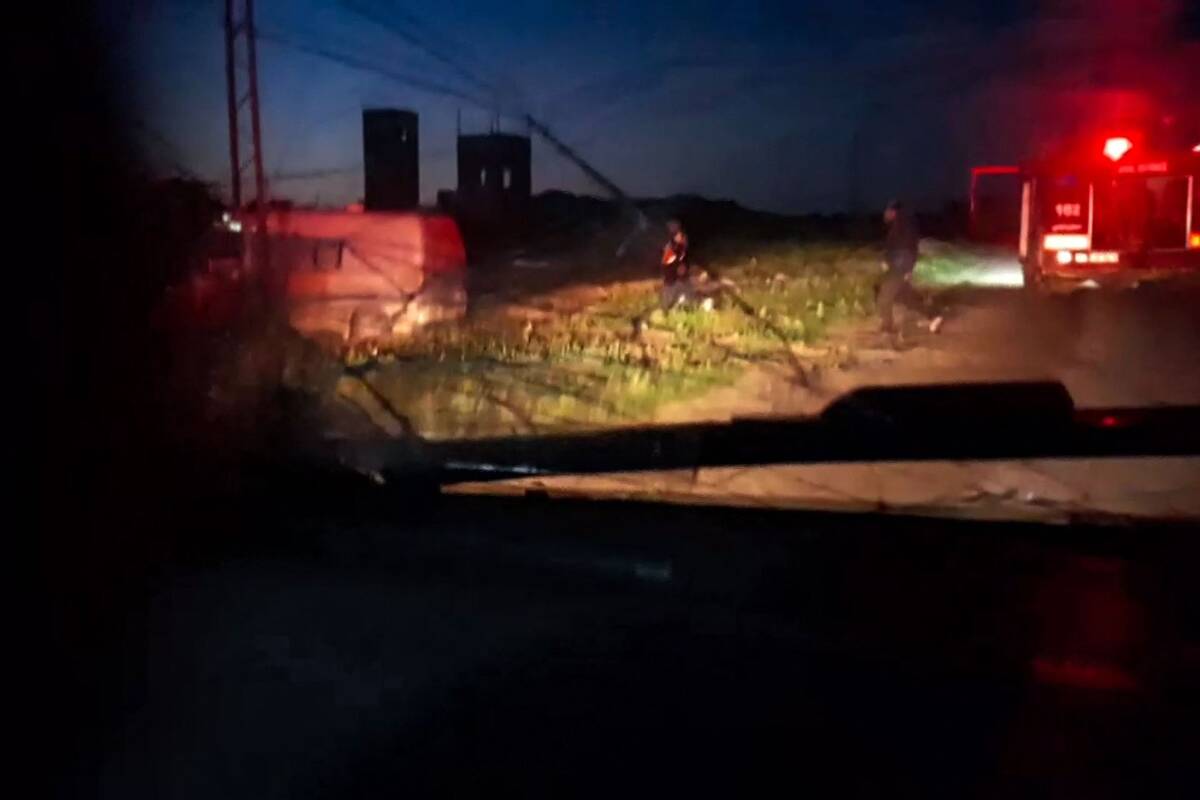JERUSALEM: As Israel reeled from a deadly attack by Hamas militants who broke through barriers around Gaza and roamed at will, killing scores of civilians in Israeli towns, defense chiefs faced growing questions over how the disaster could have happened.
A day after the 50th anniversary of the start of the 1973 Yom Kippur war, when Israeli forces were caught off guard by Syrian and Egyptian tank columns, the military appeared once again to have been surprised by a sudden attack.
“It looks quite similar to what happened at that time,” said retired General Giora Eiland, a former head of Israel’s National Security Council. “As we can see it, Israel was completely surprised, by a very well coordinated attack,” he told a briefing with reporters.
An army spokesman said there would be discussions on the intelligence preparation “down the road” but for the moment the focus was on fighting. “We’ll talk about that when we need to talk about it,” he told a briefing with reporters.
Israel has always regarded Hamas as its sworn enemy, but since inflicting heavy damage on Gaza in a 10-day war in 2021, Israel had adopted a mix of carrot and stick to maintain stability in the blockaded enclave.
It offered economic incentives including thousands of work permits allowing Gazans to work in Israel or the occupied West Bank, while maintaining a tight blockade and the constant threat of air strikes.
For the past 18 months as violence has raged across the West Bank, Gaza had been relatively quiet, apart from sporadic cross border clashes mainly involving the smaller Islamic Jihad movement with Hamas remaining largely on the sidelines.
Prime Minister Benjamin Netanyahu’s right-wing government has always made great play of its security credentials and taken an uncompromising stance toward the Palestinian militant factions including Hamas, which has controlled Gaza since 2007.
‘Intelligence failure’
However when the time came, Israel’s security apparatus appeared to break down as a force of Hamas gunmen estimated in the hundreds by the military broke through security fences and scattered into towns.
“This was an intelligence failure; it could not be otherwise,” said Jonathan Panikoff, the US government’s former deputy national intelligence officer on the Middle East, who is now at the Atlantic Council think tank.
“It was a security failure, undermining what was thought to be an aggressive and successful layered approach toward Gaza by Israel,” he said.
For Israelis, images of dead bodies lying in the streets or groups of civilians being driven or marched into captivity in Gaza came as a profound shock.
More than 250 Israelis were killed and over 1,500 wounded, an unprecedented number of Israeli victims in a single day. The military suffered significant losses and Palestinian militant groups said they had captured dozens of soldiers.
The gunmen also seized security posts including a police station in the southern town of Sderot and overran the Erez crossing, a high security facility that channels people entering and leaving Gaza through a tight series of controls.
On Saturday, Hamas media circulated footage showing fighters ranging through abandoned offices and running past the high concrete walls of the site.
“They’ve been planning this for a long time,” said former Israeli National Security Adviser Eyal Hulata. “Obviously this is a very coordinated attack, and unfortunately they were able to surprise us tactically and cause devastating damage.”



























